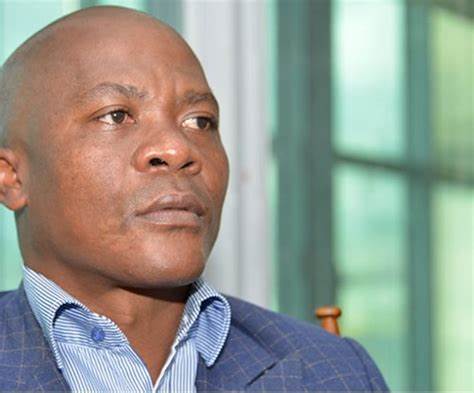As Malawi approaches September 16, the political landscape is increasingly marred by a disinformation campaign. Of late the Malawi Electoral Commission’s (MEC) decision to employ Smartmatic’s biometric Election Management Devices (EMDs) to enhance the integrity and transparency of the electoral process, has been the centre of this campaign.
Despite the system’s proven efficacy in voter registration and result transmission, the Democratic Progressive Party (DPP) backed by some self-styled and Arthur Peter Mutharika bank-rolled civil society organizations have resorted to spreading falsehoods and manipulating facts to undermine public confidence in the technology. And DPP Director of Women Mary Navicha threatened to parade naked across the country if MEC insists to use the Smartmatic.

Smartmatic is a global provider of electronic voting systems, offering technologies designed to ensure secure and transparent elections. In Malawi, Smartmatic’s EMDs is and will be utilized for biometric voter registration and the electronic transmission of results.
Importantly, the actual voting and counting processes remain manual, involving paper ballots and physical tallying. This hybrid approach combines the reliability of traditional methods with the efficiency of modern technology, aiming to reduce instances of electoral fraud and enhance the credibility of election outcomes.
The DPP’s opposition to Smartmatic is characterized by a series of unfounded claims and deliberate misinformation.
One prominent falsehood is the assertion that Smartmatic’s systems will be used for electronic voting and counting, a claim that has been repeatedly debunked by MEC officials. Justice Annabel Mtalimanja, MEC Chairperson, clarified, “People will still vote using ballot papers. The counting will be manual. What Smartmatic offers is integrity and traceability in voter registration and result transmission.”
Furthermore, the DPP has attempted to link Smartmatic to electoral controversies in countries like Indonesia, alleging that the company’s involvement led to compromised elections.
However, there is no evidence to support such claims. In fact, Smartmatic has never provided voting machines or software for elections in Indonesia, as confirmed by both the company and election officials in those countries. Similar unfounded allegations have been made regarding Smartmatic’s role in Brazil’s elections, despite the company’s limited involvement in that nation’s electoral processes.
Some civil society organizations, purportedly independent, have echoed the DPP’s narrative, raising questions about their objectivity and motivations.


Led by Boni Kalindo and Silvester Namiwa—two guys who have been dining with the DPP throughout its time in power—these groups have called for the abandonment of Smartmatic’s technology, citing concerns over its reliability and potential for misuse. However, their arguments often lack substantiation and mirror the DPP’s rhetoric, suggesting a coordinated effort to discredit the electoral process for the benefit of a few greedy individuals who would want to come back to the glory of power at all costs.
Notably, Kalindo, Namiwa and others have failed to acknowledge the rigorous procurement process that led to Smartmatic’s selection, which included consultations with various stakeholders, including political parties and civil society groups. Their current opposition appears to be less about genuine concerns and more about aligning with the DPP’s political agenda.
The Real Motive: Fear of Transparency
The intensity of the DPP’s campaign against Smartmatic raises questions about their true motivations. Analysts suggest that the party’s resistance stems from a fear of enhanced transparency and accountability.
There are reports that the DPP conducted a parallel voter registration using unauthorized equipment, registering over a million individuals outside the official system. The implementation of Smartmatic’s biometric verification would, therefore, expose such irregularities, preventing fraudulent votes from being cast.
This perspective is supported by the DPP’s previous support for Smartmatic’s adoption in Parliament, followed by a sudden and vehement opposition. Such a reversal indicates a strategic shift aimed at undermining the electoral process to maintain political power.
The DPP and its allies have cited Smartmatic’s involvement in other countries as evidence of the system’s unreliability.
However, these references are often misleading or taken out of context. For instance, in the Philippines, while there were technical glitches in some elections, independent audits reported accuracy rates over 99.5% in elections where Smartmatic equipment was utilized.

In Venezuela, Smartmatic publicly denounced electoral fraud and ceased operations in the country after they detected signs that the government was bent to manipulate and rig the elections, demonstrating a commitment to electoral integrity.
Moreover, in the United States, Smartmatic’s technology was used only in Los Angeles County during the 2020 election, with no evidence of fraud or irregularities. Despite this, the company has faced baseless allegations, leading to defamation lawsuits against media outlets that propagated false claims.
The Public Affairs Committee (PAC), a respected interfaith organization, has played a crucial role in facilitating dialogue and consensus among stakeholders. At a recent PAC indaba, participants, including political leaders and civil society representatives, overwhelmingly rejected the DPP’s proposal to abandon Smartmatic’s technology.
The consensus was that the EMDs are essential for ensuring a credible and transparent electoral process.
Monsignor Dr. Patrick Thawale, PAC Chairperson, emphasized the importance of focusing on credible and peaceful elections, stating, “We cannot allow political agendas to hijack platforms meant to promote dialogue and unity.” This sentiment reflects a broader commitment to upholding democratic principles and resisting attempts to undermine the electoral process.
The DPP’s campaign against Smartmatic is emblematic of a broader strategy to sow doubt and confusion ahead of the 2025 elections. By disseminating falsehoods and manipulating facts, the party aims to erode public trust in the electoral process and create a pretext for contesting unfavorable outcomes.
However, the resilience of Malawi’s democratic institutions, the vigilance of civil society, and the commitment of the electorate to transparency and accountability serve as bulwarks against such tactics.
As the nation moves toward the elections, it is imperative for all stakeholders to remain informed, critical, and engaged, ensuring that the democratic process is upheld and that the will of the people is accurately and fairly represented.

Probably, the biggest win for most fun-loving Malawians in this Smartmatic battle, they will now have a chance to see and admire Mary Navitcha parading in the streets naked since her efforts to have the system dropped have been in vain, the bid has finally been rejected by a consensus of the Public Affairs Committee (PAC) 6th Indaba participants.








